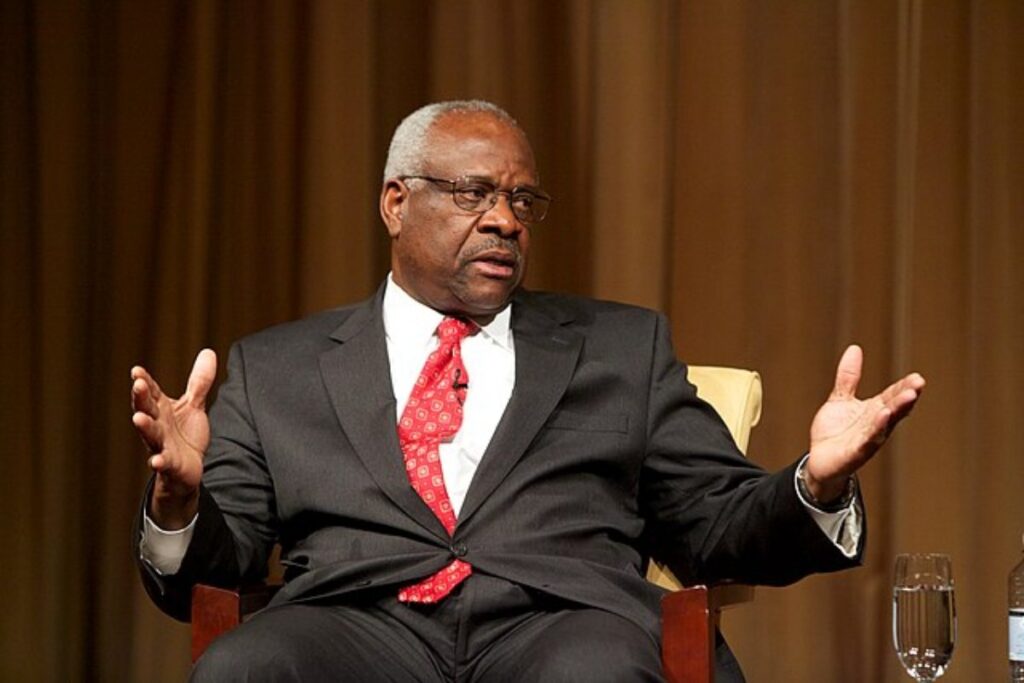Two Supreme Court judges have disagreed over important tax guidelines. Justices Clarence Thomas and Neil Gorsuch chose a different stance in contrast to the other justices after Thomas called the guidelines an unsupported invention.
On Thursday, June 20, 2024, the Supreme Court decided on the lawsuit between Moore and the United States. During the ruling, Thomas criticized the majority’s Sixteenth Amendment attribution doctrine and the majority’s new Sixteenth University doctrine, terming it a new invention.
The attribution doctrine refers to the rule in which a person’s income can’t be taxed to another taxpayer multiple times. In tax evasion, people transfer assets to family members or entities to avoid taxes. This doctrine also affects the question of income before shareholders receive it.
In 2005, Charles and Kathleen Moores invested $40,000 in KisanKraft in exchange for 11% equity in the company. Originally, income tax did not affect money companies earned until it was paid to shareholders. However, in 2017, after the Tax Cuts and Jobs Act was passed, the rule changed. Consequently, the Moores were required by law to pay $14,729 in taxes before having their dividends paid.
ALSO READ: Supreme Court Upholds Trump’s Immunity in Election Interference Case
Subsequently, the Moores sued against the rule, but the Supreme Court upheld the tax code. According to Justice Brett Kavanaugh, the Supreme Court decides where an entity’s income tax should be between its shareholders and partners.
According to the attribution doctrine, tax payments can no longer move their income to mitigate their taxes. The doctrine prohibits taxpayers from reducing tax liability by transferring assets to lower-income family members.
POLL—Should the Government Increase Taxes on the Wealthy To Reduce Economic Inequality?
Thomas criticized the majority for using superficial phrases to justify giving congress broad powers under the Sixteenth Amendment for income attribution. The vote was 7-2, with Thomas and Gorsuch dissenting. Thomas stated that the principal lacked legal support.
According to Alex Beene, while the Biden administration’s proposal to unrealized ta. gains is good on paper, its practicality is complex. Beene is a financial literacy instructor at the University of Tennessee. Beene said the decision seems more geared toward this specific situation.
WATCH: Powell Warns US Is on an “Unsustainable Fiscal Path”
Thomas’s criticism comes amid fears that this would set a judicial precedent for future lawsuits with similar facts. However, Kavanaugh agreed that this decision is only applicable to this particular situation and would not affect wealth taxes.
Historically, the argument that the tax system is unfair is baseless, according to Drew Powers, the founder of the Illinois-based Powers Financial Group. In an interview, Powers stated that the tax code is arbitrary, as both the Supreme Court and tax courts have determined on several occasions. He continued that this is the result of conversation and compromise.
You Might Also Like:
Authorities Discover 7-Year-Old Boy Shot Dead Outside His Front Door
Jenny Mollen Reveals She Didn’t Watch “American Pie” Before Marrying Her Husband
NYAG Letitia James Distributes Half of $112 Million Lawsuit Settlement
Trump Blasts Fox News, Says No One Can Trust the News Outlet
8th Grade Teacher Breaks the Internet, Shares the Weird Conversations Her Students Have With Her
